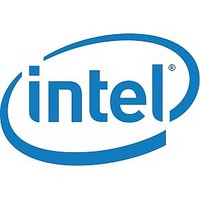SLXT332QE.G2 S E001 Intel, SLXT332QE.G2 S E001 Datasheet - Page 18

SLXT332QE.G2 S E001
Manufacturer Part Number
SLXT332QE.G2 S E001
Description
Manufacturer
Intel
Datasheet
1.SLXT332QE.G2_S_E001.pdf
(42 pages)
Specifications of SLXT332QE.G2 S E001
Operating Supply Voltage (typ)
5V
Screening Level
Industrial
Mounting
Surface Mount
Operating Supply Voltage (min)
4.75V
Operating Supply Voltage (max)
5.25V
Operating Temperature (min)
-40C
Operating Temperature (max)
85C
Lead Free Status / RoHS Status
Not Compliant
LXT332 — Dual T1/E1 Line Interface Unit with Crystal-less Jitter Attenuation
3.2.2
3.3
18
1. Line length from LXT332 to DSX-1 cross-connect point
2. Maximum cable loss at 772 kHz
LEN2
Table 5.
0
1
1
1
1
0
0
0
LEN1
1
0
0
1
1
0
0
1
A Low-to-High transition on VCQ is required for each subsequent BPV insertion.
Pulse Shape
The transmitted pulse shape is determined by Line Length equalizer control signals LEN0 through
LEN2 as shown in
LEN codes are input through the serial interface. Shaped pulses are applied to the AMI line driver
for transmission onto the line at TTIP and TRING. The line driver provides a constant low output
impedance of less than 3 (typical), regardless of whether it is driving marks or spaces. This well
controlled impedance provides excellent return loss when used with external precision resistors
(± 1% accuracy) in series with the transformer.
specifications.
return losses for various LEN codes. To minimize power consumption the LXT332 can be tied
directly to a 1:1.15 transformer without series resistors.
Pulses can be shaped for either 1.544 Mbps or 2.048 Mbps applications. 1.544 Mbps pulses for
DSX-1 applications can be programmed to match line lengths from 0 to 655 feet of 22 AWG
ABAM cable. A combination of 9.1
1 applications. The LXT332 also matches FCC pulse mask specifications for CSU applications.
Equalizer Control Inputs
The LXT332 produces 2.048 Mbps pulses for both 75 coaxial (2.37 V) or 120 shielded (3.0 V)
lines through an output transformer with a 1:2 turns ratio. For coaxial systems, 9.1
resistors are recommended. For twisted-pair lines, use 15
Driver Failure Monitor
The transceiver incorporates an internal Driver Failure Monitor (DFM) in parallel with TTIP and
TRING. A capacitor, charged via a measure of the driver output current and discharged by a
measure of the maximum allowable current, detects driver failure. Shorted lines draw excess
current, overcharging the capacitor. When the capacitor charge deviates outside the nominal
charge window, a driver failure is reported. In Host mode the DFM bit is set in the serial word. In
Hardware mode the DFM pin goes High. During a long string of spaces, a short-induced
overcharge eventually bleeds off, clearing the DFM flag. The DFM feature will only detect short
circuits when a very short cable is present at the output. Note that different cable lengths will
change the short-circuit current substantially.
3. During Remote Loopback, BPV insertion is disabled.
LEN0
1
0
1
0
1
0
1
0
Table 10
133 – 266 ft. ABAM
266 – 399 ft. ABAM
399 – 533 ft. ABAM
533 – 655 ft. ABAM
0 – 133 ft. ABAM
Table
Line Length
ITU Recommendation G.703
lists transmit transformer data, series resistor (Rt) values, and typical
FCC Part 68, Option A
5. Equalizer codes are hardwired in Hardware mode. In Host mode the
1
resistors and a 1:2.3 transformer is recommended for DSX-
Cable Loss
0.6 dB
1.2 dB
1.8 dB
2.4 dB
3.0 dB
Table 9
2
lists recommended transformer
E1 – Twisted-pair (120 )
resistors.
E1 – Coax (75 )
Application
DSX-1
CSU
Transmit Rate
1.544 Mbps
2.048 Mbps
1.544 Mbps
series
Datasheet











